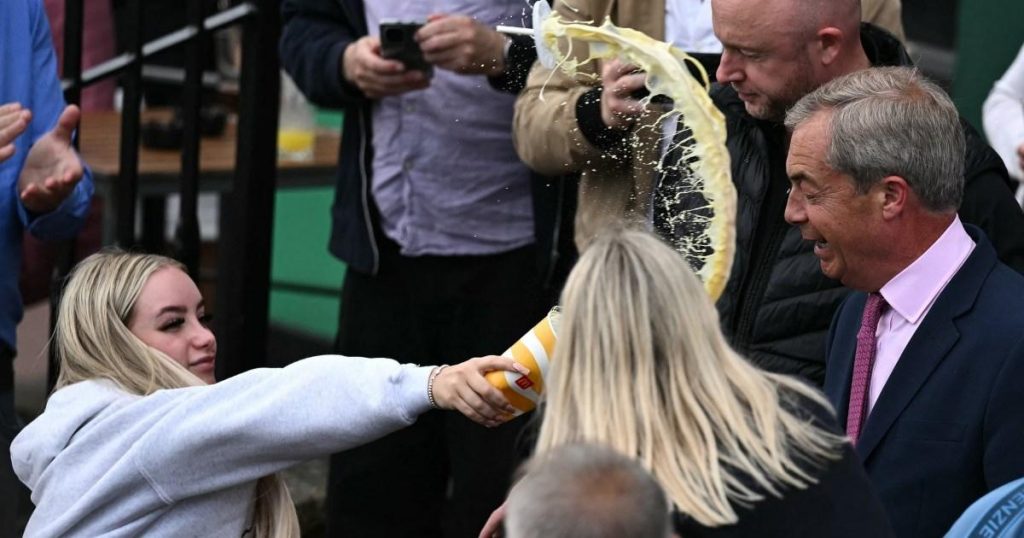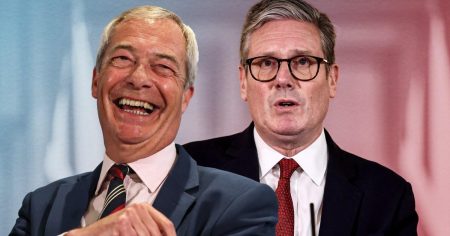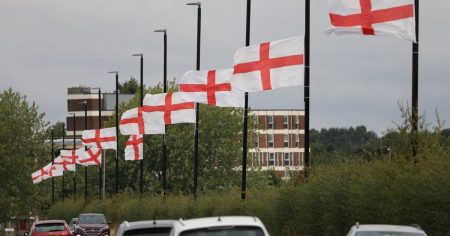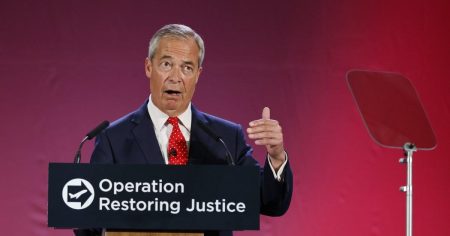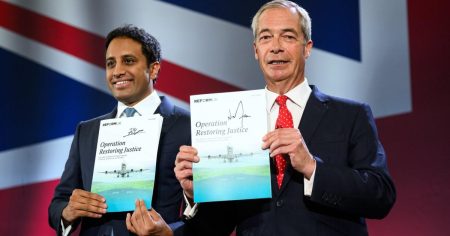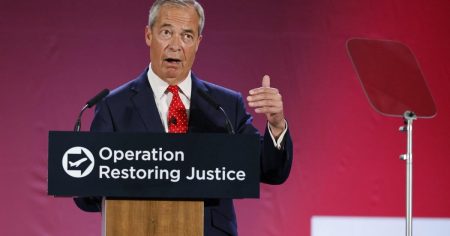The Milkshake Incident: A Deep Dive into the Farage Assault and Its Aftermath
The political landscape is often fraught with tension, and the incident involving Nigel Farage and Victoria Thomas Bowen epitomizes this reality. On June 4th, 2024, as Farage launched his general election campaign outside a pub in Clacton-on-Sea, Bowen, an OnlyFans model, threw a banana-flavored milkshake over him. This seemingly trivial act sparked a debate about freedom of speech, political discourse, and the appropriate response to such actions.
Farage, the leader of the Reform party, had just announced his candidacy for the Essex seat, a surprise move after previously ruling himself out. Bowen’s act, captured by photographers and quickly disseminated across social media, instantly became a symbol of the polarized political climate. While some saw it as a justified expression of dissent against Farage’s views, others condemned it as an assault and a disrespectful act towards a political figure.
The legal proceedings that followed shed further light on the incident. Bowen, 25, pleaded guilty to assault by beating and criminal damage, acknowledging that her actions caused damage to Farage’s security officer’s jacket. The sentencing hearing, however, sparked further controversy. Bowen received a 13-week prison sentence, suspended for 12 months. Farage publicly criticized this outcome, claiming it exemplified a "two-tier justice system" where assaulting a Member of Parliament carried no real consequences. He argued that the leniency of the sentence undermined the seriousness of the assault and sent a message that such behavior was acceptable.
The incident highlighted the challenges of balancing freedom of expression with the need to protect individuals from harassment and violence. While Bowen’s act was undoubtedly an expression of her political views, it also crossed the line into physical assault, however minor. This raises questions about the limits of protest and the extent to which individuals can express their disapproval of political figures without resorting to violence or intimidation.
The milkshake incident also drew parallels to a previous event in 2019 where Farage was doused with a milkshake during a campaign appearance. This recurring theme suggests a pattern of targeting Farage with this specific type of protest, raising questions about its symbolic meaning and potential motivations. Is it a form of mockery, an attempt to humiliate, or a more serious threat? The repetition of the act adds another layer of complexity to the discussion.
Beyond the immediate legal and political ramifications, the incident sparked broader conversations about the nature of political discourse in the digital age. Social media played a significant role in amplifying the event, allowing it to spread rapidly and become a topic of national debate. This instantaneous dissemination of information, while facilitating public awareness, also contributed to the polarization of opinions and the escalation of tensions. The online echo chambers reinforced pre-existing biases, making it difficult to have a nuanced and productive conversation about the incident and its implications.
Furthermore, the incident raised concerns about the safety and security of political figures. Farage expressed concern for his personal safety, highlighting the potential risks faced by those in the public eye. This raises questions about the adequacy of security measures for politicians and the need to strike a balance between protecting them from harm and allowing them to engage with the public. The incident underscored the vulnerability of political figures and the need for vigilance in an increasingly polarized and unpredictable political environment.
The incident involving Nigel Farage and Victoria Thomas Bowen serves as a microcosm of the broader challenges facing democracies today. It highlights the tensions between freedom of speech, political protest, and the need to maintain order and protect individuals from harm. The case also underscores the role of social media in amplifying and polarizing public discourse, making it increasingly difficult to find common ground and engage in constructive dialogue. Finally, the incident raises important questions about the security of political figures and the need to protect them from violence and intimidation while also preserving their ability to connect with the public.
The incident, while seemingly trivial on the surface, reveals deeper societal anxieties about the state of political discourse and the erosion of civility. It forces us to confront uncomfortable questions about the limits of free speech, the effectiveness of our justice system, and the impact of social media on our political landscape. The milkshake incident, therefore, serves as a cautionary tale, reminding us of the importance of respectful dialogue, tolerance, and the rule of law in a functioning democracy. It is an incident that will likely be debated and analyzed for years to come, serving as a reminder of the complex challenges facing societies in the 21st century.





